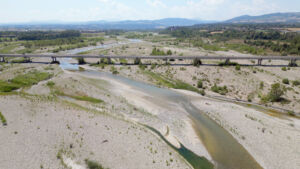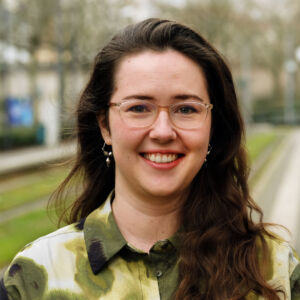Europe faces the challenge of dealing with increasing water extremes such as floods, droughts and pollution. These phenomena threaten water and food supplies, cause damage to infrastructure and endanger ecosystems. The project ‘tweacEUROPE – Telecoupling in Water Extremes: Enhancing Social-Ecological Resilience in Europe’ is a networking project that brings together scientists and practitioners from across Europe to better understand the role of telecoupling – the interactions of socio-ecological systems across spatial and temporal distances – in the emergence and intensification of these water extremes. The aim of the project is to develop a research proposal to identify ways of strengthening socio-ecological resilience in Europe.
Research approach
In accordance with the funding guidelines, the tweacEUROPE networking project aims to form an international research consortium over a period of two years with the goal of further developing the research idea and formulating it into a project proposal at the EU level. To this end, the project team will organise international, participatory stakeholder processes that will strengthen the formation of the extended project consortium and refine the research ideas by discussing them with various stakeholder groups.
Background
In order to strengthen the resilience of various European regions to water extremes, it is crucial to investigate the causes, effects and interactions between relevant actors and locations. Telecouplings play a central role in this.
Telecouplings can exacerbate flood risks: deforestation or deforestation in one region can increase flood risks in another region. Urbanisation and land use changes affect river discharge patterns and expose downstream communities to greater risk.
Telecouplings can influence drought dynamics: Agricultural practices such as the cultivation of water-intensive crops for export put pressure on water resources and increase drought intensity. Importing water-intensive goods can transfer water stress from one region to another.
Telecouplings can promote transboundary pollution: Industrial and agricultural activities can contaminate surface and groundwater bodies that flow across borders, affecting downstream ecosystems and human and non-human health.
Research and project partners
- Faculty of Philosophy, University of Zagreb
- Faculty of Physics, University of Rijeka
- Faculty of Economics, University of Rijeka
- Hydro-Engineering Institute Sarajevo
Funding
The project ‘tweacEUROPE – Telecoupling in Water Extremes: Enhancing Social-Ecological Resilience in Europe’ is funded by the Federal Ministry of Research, Technology and Space (BMFTR) under the guideline for funding projects on ‘Integrating the Middle East and South-East Europe region into the European Research Area’ (Bridge2ERA2021).
Contact:



